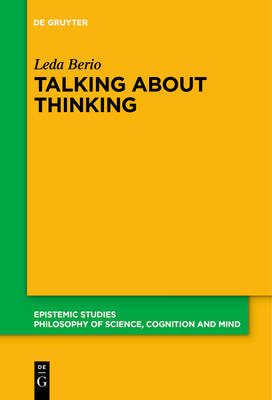
- Afhalen na 1 uur in een winkel met voorraad
- Gratis thuislevering in België vanaf € 30
- Ruim aanbod met 7 miljoen producten
- Afhalen na 1 uur in een winkel met voorraad
- Gratis thuislevering in België vanaf € 30
- Ruim aanbod met 7 miljoen producten
Omschrijving
Our ability to attribute mental states to others ("to mentalize") has been the subject of philosophical and psychological studies for a very long time, yet the role of language acquisition in the development of our mentalizing abilities has been largely understudied. This book addresses this gap in the philosophical literature.
The book presents an account of how false belief reasoning is impacted by language acquisition, and it does so by placing it in the larger context of the issue, how language impacts cognition in general. The work provides the reader with detailed and critical literature reviews, and draws on them to argue that language acquisition helps false belief reasoning by boosting the ability to create schemata that facilitate processing of information in some social contexts. According to this framework, it is a combination of syntactic clues and cultural narratives that helps the child to solve the classic false belief task.
The book provides a novel, original account of how language helps false belief reasoning, while also giving the reader a broad, precise and well-documented picture of the debate around some of the most fundamental issues in social cognition.
Specificaties
Betrokkenen
- Auteur(s):
- Uitgeverij:
Inhoud
- Aantal bladzijden:
- 293
- Taal:
- Engels
- Reeks:
- Reeksnummer:
- nr. 49
Eigenschappen
- Productcode (EAN):
- 9783111277066
- Verschijningsdatum:
- 8/05/2023
- Uitvoering:
- Paperback
- Formaat:
- Trade paperback (VS)
- Afmetingen:
- 156 mm x 234 mm
- Gewicht:
- 458 g

Alleen bij Standaard Boekhandel
Beoordelingen
We publiceren alleen reviews die voldoen aan de voorwaarden voor reviews. Bekijk onze voorwaarden voor reviews.











